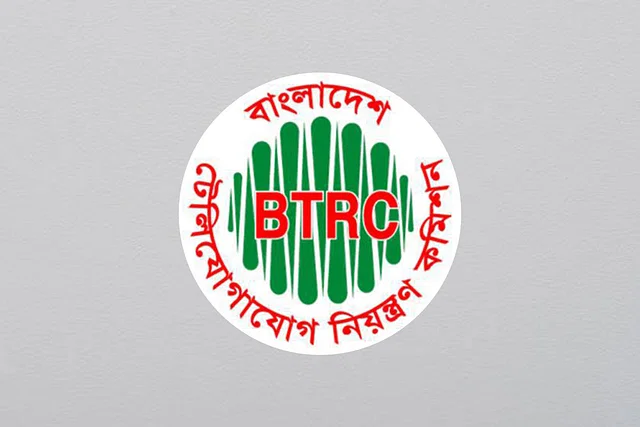The recently departed chairman of the Bangladesh Telecommunication Regulatory Commission (BTRC) spent nearly three times the annual allocation for the government’s “secret service expenditure” within just six months. In monetary terms, this amounts to approximately 15 million BDT (Bangladeshi Taka). However, details regarding how this money was spent remain undisclosed. BTRC has requested an account of this expenditure from him.
According to the government’s General Financial Rules, expenditures listed under “Secret Service Expenditure” are generally referred to as intelligence expenses. Primarily, this type of fund is allocated to various intelligence agencies and law enforcement agencies. It is often maintained as a “source fund,” which is money provided in exchange for information. The BTRC, as the regulator of the telecommunications sector, also has such a fund, primarily sourced from the budget’s lump-sum allocation. BTRC sources indicate that this fund is allocated for monitoring, intelligence services, and source money (money paid to informants in exchange for information). Typically, the chairman of the organization has the authority to spend this money, with a maximum allowable expenditure of 5 million BDT per year.
Amidst a changing political landscape, BTRC Chairman Md. Mohiuddin Ahmed resigned after about eight months in office. He had previously held senior positions in the student wing (Chhatra League) and the volunteer wing (Swechchhasebak League) of the ruling party. He was appointed as BTRC chairman on December 14 and resigned on August 14. However, within just six months of his tenure, he spent approximately 15 million BDT from the intelligence fund.
Attempts were made to contact Mohiuddin Ahmed regarding this matter, but he did not answer his phone. When a message was sent via WhatsApp, he did not respond either.
BTRC introduced the accounting for intelligence expenses in June 2009, during the chairmanship of Major General (Retd.) Zia Ahmed. Reviewing the transactions from this fund from 2015 to the current August shows that as of May 2015, the fund held more than 4.6 million BDT. Interest was added at various times. In February of the following year, 1.5 million BDT was withdrawn. No money was withdrawn from this fund for the next five years.
Subsequently, some money was withdrawn from this account in June 2021 and March 2022. Until January 2024, no additional money was withdrawn.
When Mohiuddin Ahmed assumed his role as chairman, the intelligence fund account held over 10.4 million BDT. The withdrawals from this account began during his tenure. On January 4, he withdrew 2.5 million BDT. By June 12, over 14.6 million BDT had been spent from this fund.
Sources within BTRC stated that typically, expenses from this fund require the signatures of someone from the agency’s finance and revenue department. However, Mohiuddin Ahmed did not follow this procedure, nor did he disclose where the money was spent to BTRC.
Yesterday, Thursday (August 22), BTRC sent a letter to Mohiuddin Ahmed requesting a certification of expenditure. The letter mentioned that there is a provision to keep records of expenditure from this fund. To prepare BTRC’s annual financial statement, the transactions from the “Secret Service Expenditure” must be accounted for.
A former BTRC official told Prothom Alo that funds from this account are generally used to monitor illegal activities, such as unauthorized VoIP operations, or to check for any misuse of resources. However, there is usually no need to spend the entire allocation from this fund.
It is worth noting that there is no mention in the law of any fund or category like this existing within BTRC’s financial matters.
Former Comptroller and Auditor General (CAG) and Finance Secretary Md. Muslim Chowdhury told Prothom Alo, “There are certain allocations for conducting intelligence activities. It is necessary to investigate why BTRC has such a fund and whether it is legally supported.”
Elaboration in Academic Language:
This situation raises significant questions regarding the governance and financial management practices within public regulatory bodies. The use of “secret service expenditure,” typically reserved for intelligence and law enforcement agencies, by a telecommunications regulatory authority, is unusual and suggests a potential overlap or misuse of public funds.
The case of the BTRC chairman’s rapid expenditure of intelligence funds underscores several critical areas for further inquiry and research:
- Transparency and Accountability: The lack of detailed accounting and justification for the rapid expenditure of nearly 15 million BDT suggests deficiencies in oversight mechanisms. Effective governance requires that all public expenditures, especially those labeled as “secret” or “intelligence” funds, be subject to stringent checks and balances to prevent misuse.
- Regulatory Frameworks and Legal Compliance: The allocation and use of funds for intelligence purposes by a regulatory authority raise legal questions. There must be clear legal justifications and statutory frameworks guiding such expenditures to ensure that funds are used appropriately and align with the agency’s mission.
- Ethical Considerations and Institutional Integrity: The departure of the chairman amidst these financial irregularities may indicate deeper ethical issues within the institution. Organizations like BTRC need robust ethical guidelines and a culture of integrity to maintain public trust and effectively regulate the sectors they oversee.
- Policy Implications for Future Governance: This incident should prompt a reevaluation of how intelligence funds are allocated and managed across government agencies. It may be necessary to develop clearer policies that delineate the purposes and limits of such expenditures, ensuring they are used strictly for their intended purposes.
Overall, the situation at BTRC reveals the need for improved financial governance, greater transparency in public expenditure, and stronger legal frameworks to prevent potential misuse of funds. This case could serve as a valuable lesson for other regulatory bodies and public institutions on the importance of maintaining accountability and ethical standards in all financial activities.










